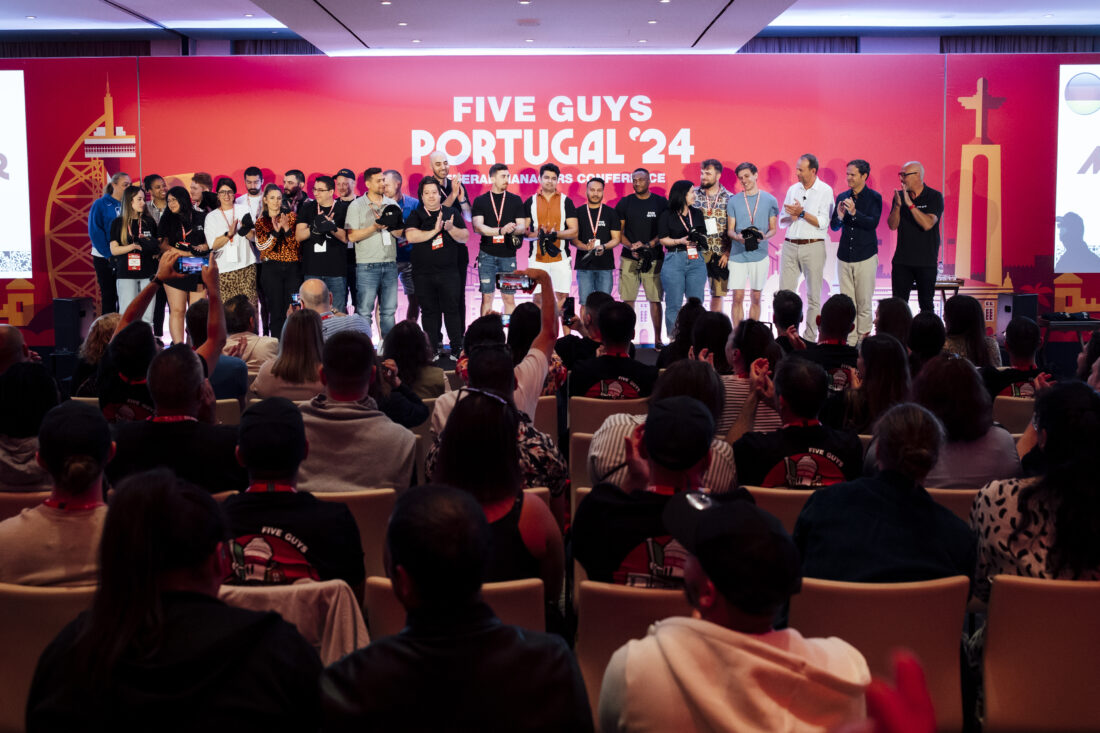How can events engage a dispersed workforce?
How enthusiastic and motivated do your team feel about achieving your company’s goals? There are many reasons why employee engagement should form a key part of your business objectives, not least because it can lead to better retention, increased productivity, and improved performance.
Despite the clear benefits of employee engagement, only 10% of UK employees feel engaged at work, falling behind the global employee engagement rate of just 23%.*
In today’s fast-paced and globally connected business environment, companies often find themselves managing a disparate workforce, spread across various locations and even countries. The rise in hybrid working has added to this challenge, with almost half of UK workers now having a regular remote working arrangement.**
Geographic separation can be challenging when it comes to creating a unified company culture, but what can businesses do to bring teams together and improve engagement levels? A highly effective solution to this problem is the strategic use of corporate events.
Our experienced events team has delivered impactful events for a variety of brands in Manchester, Cheshire and beyond, from international hospitality brands like Five Guys and Cafe Nero to UK-wide retail brands like Clifton Trade Bathrooms and Moda Furnishings.
Whether it’s a conference, teambuilding, or reward and recognition event, there are many ways in which corporate events can boost team morale and engage a dispersed workforce.
Turning your employees into brand ambassadors
Immersing employees in your company culture can help to transform them into loyal and enthusiastic brand ambassadors, which is why brand values should always be front and centre when it comes to planning corporate events. Talks from leadership, which may highlight achievements and future business plans, can also be useful in creating a sense of pride and aligning employees’ personal goals with the company’s objectives. This doesn’t mean the format has to be typical, however. We recently helped Livv Housing to deliver a festival-themed conference for 500 employees, with presentations, branding, and more.
Creating a sense of belonging
Creating a sense of belonging is crucial for building a cohesive and motivated team, especially in companies where employees are mainly remote or distributed across different places. Corporate events can bridge this gap by bringing employees together, regardless of where they are based. This is one of the reasons our client Clifton Trade Bathrooms used their spring sales conference to bring together 200 people from branches across the UK. Through networking opportunities and fun team-building activities, employees from various regions and countries can connect, share experiences, and build meaningful relationships. This helps to create a team that’s aligned with your company’s goals and culture.
Reward and recognition
Making employees feel valued can have a big impact when it comes to loyalty and retention, which is why reward and recognition events can be so effective. Corporate events provide an excellent platform to celebrate employees’ achievements. Celebrating team wins, through award ceremonies and recognition dinners for instance, not only boosts morale and motivation but also sets a benchmark for others to strive towards. Ultimately, reward and recognition can encourage loyalty, reduce turnover, and cultivate a motivated and high-performing workforce. At Five Guys’ annual overseas event, they include an awards ceremony element, recognising the achievements of their 600 general managers from across Europe.
Encouraging collaboration and innovation
Corporate events provide the perfect environment for collaboration. Workshops and brainstorming sessions during events, for example, can stimulate creative thinking and problem-solving. Employees from different departments and locations can share their unique perspectives, leading to innovative solutions and fresh ideas. These collaborative efforts not only enhance team dynamics and communication but also empower employees to take ownership of their contributions. By promoting a culture of diversity, collaboration and innovation, corporate events help companies stay competitive and adaptable in a rapidly changing business landscape.
Aligning brand values and goals
A corporate event is a powerful platform for communicating and reinforcing brand values and goals, ensuring that all employees are on the same page. Through engaging presentations, workshops, and interactive sessions, companies can share their vision and strategic objectives. When employees can understand and embrace their organisation’s values and goals, they’re more likely to align their own personal objectives with the company’s mission, leading to a unified team working towards common aspirations. When we delivered Five Guys’ general managers conference in Lisbon, we ensured their brand values took centre stage throughout the three-day event, via both activities and visual branding.
International events
Looking beyond UK events, international conferences can be particularly effective in engaging a disparate workforce, especially when a company employs people across many countries. These events have the power to bring together employees from around the world, providing a global perspective and a sense of unity. They offer a unique opportunity for cross-cultural exchange, learning, and collaboration, whilst rewarding employees at the same time. By participating in these global events, employees gain exposure to new ideas and trends, which can inspire them to bring fresh insights and approaches back to their local teams. After all, who wouldn’t want to be whisked away somewhere stunning and sunny, with all expenses paid?
Want to find out more about our 2024 Five Guys Lisbon conference? Read our blog.
Are you looking to deliver a corporate event with a difference? Get in touch to see how we can help bring your event vision to life.
*According to Gallup’s State of the Global Workplace report.
**(14% only worked from home and 26% travelled to work and worked from home, between 22nd May – 2nd June 2024, according to ONS)
